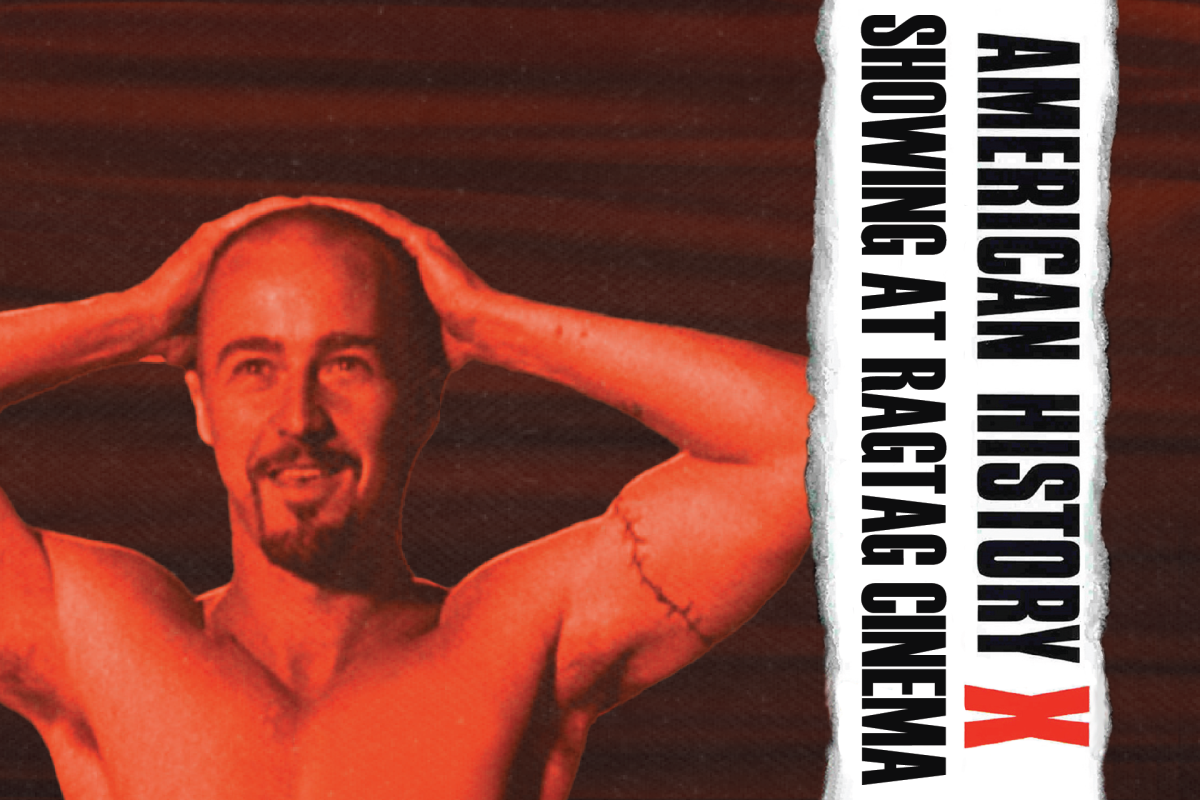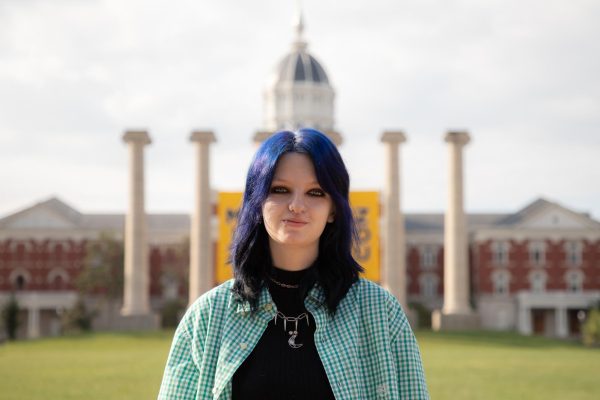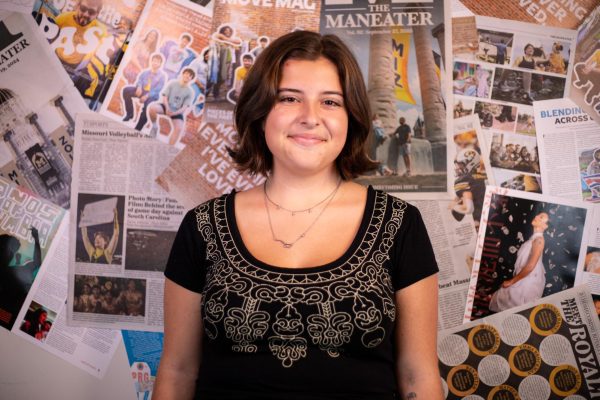On Oct. 23, Ragtag Cinema partnered with Race Matters, Friends, a local nonprofit organization focused on racial equity, to host a free screening and discussion of “American History X.”
More than two decades after its release, “American History X” still feels like a gut punch. It’s not an easy watch, because it wasn’t intended to be. The 1998 film follows Derek Vinyard, a former white supremacist, trying to keep his younger brother, Danny Vinyard, from going down the same violent path he once followed.
While serving time in prison for the murder of two Black men who tried to steal his truck, Derek Vinyard begins to see the cost of his hate. Lamont, a black inmate, treats him with unexpected kindness, forcing Derek Vinyard to question the stereotypes and assumptions that shaped his worldview. At the same time, the white supremacist gang he thought of as family turns on him, exposing the hypocrisy and emptiness behind the ideology that once defined him.
By the time Derek Vinyard is released, he returns home to find that his younger brother idolizes him and has adopted the same racist ideology he now rejects. That realization forces Derek Vinyard to confront the true reach of his past: not just the people he hurt, but the hate he has passed down.
What unfolds is a story of accountability and the long, uneven road towards change – a story that still echoes in communities like Columbia, where conversations about race, belonging and justice remain ongoing.
The final moments of the film reflect the way real communities navigate grief and growth. There is no perfect ending, just the ongoing effort to do better. “American History X” exposes the systems that make hatred possible with the environments, fears and silence that sustain it.
Through this partnership with Race Matters, Friends, the screening opened up a conversation about racial ideologies. The nonprofit, which was founded in 2014 in response to racial inequities within Columbia and Boone County, continues to lead community discussions and collaborations focused on building equity and awareness.
Ragtag has long served as more than just a theater; it’s a gathering space for reflection and dialogue. By pairing a film that forces viewers to confront the roots of radical hatred with a group devoted to examining those same issues locally, the event became an act of civic reflection.
If “American History X” still hits this hard decades later, it’s a sign that the work it demands has not been finished. Watching the film in a theater full of neighbors turns that responsibility inward. The film asks for honesty, discomfort and the willingness to confront the parts of society and ourselves that we would rather not acknowledge.




